Hello. This is a question for a veterinary nutritionist. Maybe the folks at balanceit.com might be helpful?
My dog has a patch on the tip of her ear that looks like a build up of something. It is dry and hard. I started picking at it and the hair started coming part. What is this and how do I help?
She also has other spots on her body that are just dry and thinning hair. Is there anything I can do to help with hair loss/thinning? Anything topical? We were told she may have an allergy to chicken so she is on a sensitive diet.
Comments
I have a small dog treat bakery side hustle and would like to include small cakes, donuts and muffins in my treat line. Cake like recipes call for baking powder, baking soda or both. Is there any amount that is safe? Where would I find solid information on the use of these items in cakes for dogs?
I’ve tried using eggs for leavening but things like donuts are still brick like – and yes I taste each item I make!
Thanks!
Comments
I’m a loving pet owner with a 12 yr old Morkie (who is dying from prostate cancer$ and a Yorkie puppy (who we got before the cancer diagnosis). Interested in how to know signs of imminent death or the need to euthanize. Also, tips on keeping the Yorkie’s “puppy-ism” from causing the Morkie to be overwhelmed with fear, discontent, concern, feeling outcast.
Comments
Hello ! My 6yo husky have like a filter in her eye. She had this about 1-2 times / years, only for few days and it pass. But now, it’s been more than a week, don’t seem to disappear and worse than the other time. What could it be ? Did she need à vet appointment now or I wait a little more ?
Thank you ! – sorry I speak french, I hope my text is clear !
Comments
I’m have a 7month old female tortie who broke her left humerus last night. The ER vet at falls road animal hospital who was the only ER able to take her, and delayed a surgery to do so, said it was a spiral fracture and they were worried it could puncture through the skin. I was quoted $1400 for everything needed before surgery. They say they can do surgery Thursday which they estimated to be 4-5k but has always been higher in my experience with them so I am anticipating 6k. I do not have those funds. I made a gofundme, waggle, and posted to fb groups. I’ve reached out to other vets like JVC, timonium, padonia, spaynow for second opinions. Hoping to hear back. Especially from Dr Magnifico at JVC as she has come the mostly highly recommended on every post I’ve made.
Any help would be beneficial.
Comments
My perfectly healthy 13 yo boxer just out of nowhere his back legs fall out from under him and he can’t stand or walk. He doesn’t seem bothered when you touch his back or legs and then stared vomiting









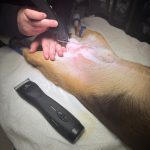







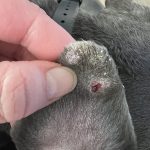
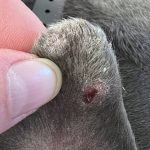
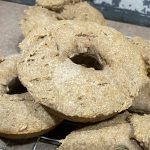


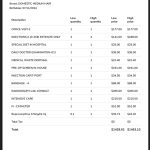
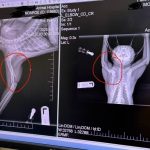
I suspect that this is related to allergies and therefore the answer lies in helping the body from the inside out versus trying to get topical products work for the outside in.
Please talk to your vet about the many options we have for treating atopy in dogs.
You may also need an oral antibiotic or medication for over abundant yeast.